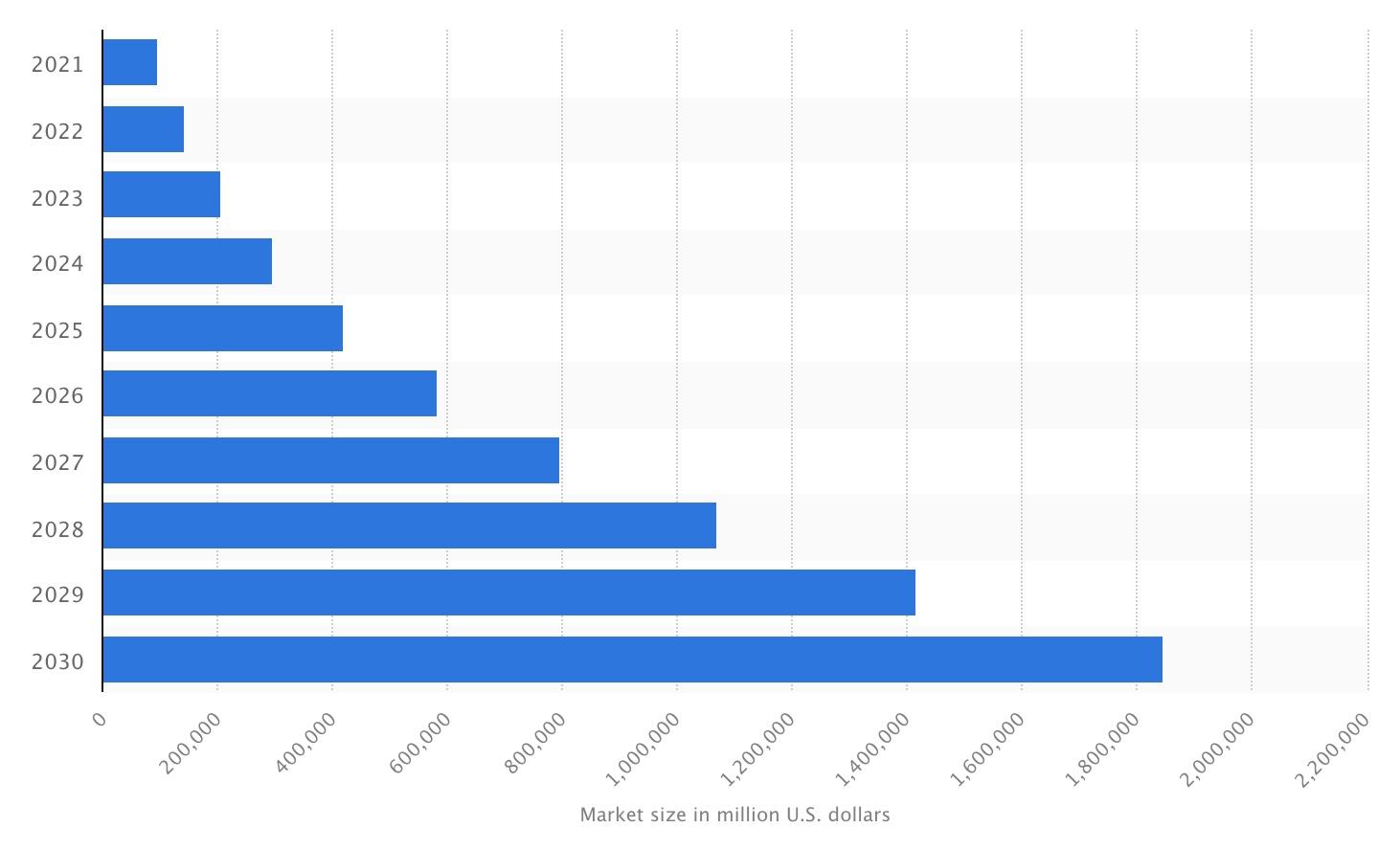
TLDR: At Media Shower, our view is that AI won’t replace good marketers, but it’s definitely changing the marketer’s job. One of the most valuable skills for marketers to learn is AI prompt engineering, or writing the prompts that are fed into AI tools like ChatGPT.
So what? If you learn AI prompt engineering, you will vastly improve your marketing results: you’ll be more productive, delivering more content in less time. In this article, we’ll share with you our best-performing AI prompts for content research, creation, editing, and optimization.
AI prompt engineering is a new field, emerging with the rise of AI content generation tools. Those in this highly compensated position (AI prompt engineers can make $375,000 a year, per Business Insider) write queries for AI tools to deliver better results.
Marketers have a superpower in prompt engineering, because most of us are verbal. We understand language, and these AI tools run on large language models. The skill of prompt engineering is like a mashup writing and computer programming. It involves trying out queries, seeing how the AI tool responds, then iterating and improving, like debugging an application.
Because AI content generation is projected to explode in the coming years (see graph below), learning how best to use it makes good business sense.
The Ideal Prompt Format
Here are the five best practices we’ve learned to write the best prompts:
- Provide context. Your prompt will be greatly improved by starting with “Imagine you are a brilliant copywriter who is…” or “Act as an expert marketer who is…” Having the AI “roleplay” will give it a much better idea what you’re after.
- State a specific goal. Most people use lazy, one-shot prompts like “Write me a blog post on…” It’s much better to think about your end goal: “Write me a blog post targeted to the top questions a customer would ask around…”
- Provide a specific format. AI tools can provide materials in summary, bulleted lists, full text, tables, code, and many other formats. Think about what will be easiest to digest.
- Break a big task into smaller tasks. Instead of asking for a complete marketing strategy, start with telling it facts about your business and work your way up.
- Give examples. If you can give the AI tool a specific example of how you want it formatted, you’ll get even more precise results.
Lazy prompt:
Tell me the best social automation platforms
Great prompt:
Act as an expert business consultant who assists marketing managers in choosing the best social media automation platforms. Give me a list of 10 platforms in the following table format, sorted by total number of ratings:Name of Company | URL | Monthly price | Average G2 rating | Number of G2 ratings | Average TrustPilot rating | Number of TrustPilot ratings
For example:
XYZ Social Media Platform | https://www.xyzsocialmediaplatform.com | $100/mo | 4.3 | 125 | 3.5 | 23
Try these two prompts and see the difference.
The Importance of Iteration
The key to getting knock-your-socks-off results from AI is iteration. You can make your results even better — more unique, more nuanced, and more relevant — with follow-up prompts. Treat the initial response as a draft. Most AI chatbots will remember what came before in the conversation, so you can follow up with prompts like these:
Iteration Prompts:
- Tell me more about #3.
- Please rewrite, including facts that most people don’t know.
- Please list 10 objections that a(n) [audience] might have to this.
- Please rewrite, incorporating this additional context: [insert new information]
You can even ask AI to critique itself!
- Please analyze your logic and suggest improvements.
- Give me a list of prompts to ask you to help improve this content.
- Suggest reasons why this won’t work.

Content Research Prompts
AI is a powerful content research tool. If you’re looking for ideas, you’ll still need to do some refinement, but it is a massive idea brainstorming accelerator. Here are some of the best-performing research prompts we’ve developed at Media Shower.
- Create blog angles based on an existing article: Please summarize this article, then suggest 5 unique angles based on it with SEO-friendly titles: [paste in blog post]
- Pillar and cluster ideas: Please give me 10 semantically related topics for [keyword].
- Blog titles: Suggest 10 blog post titles for [topic or keyword].
- Idea generation: List 10 things [target audience] may not know about [topic or keyword].
- Info gathering: Please list five quality sources for information about [keyword or description].
- Research: Find 5 peer-reviewed studies on the effectiveness of [insert topic] and summarize.
- Interview questions: Give me 10 questions to ask this person: [insert LinkedIn profile or bio]
- Simplification: Please explain this [article, concept, etc.] so an everyday reader can understand it: [paste in content]
- Extreme simplification: Please explain this [article, concept, etc.] so a five-year-old can understand it: [paste in content]
Content Creation Prompts
“Write me a blog post on [topic].” The Internet will soon be awash in AI-generated content generated by lazy prompts like this one. That strategy will never work. Instead, you’ve got to get way better with your prompt writing, using high-performing examples like these.
- Match style: Write a [blog post, brief, etc.] in the style and tone of this sample: [paste sample]
- Ghostwrite: Write in the style of… [company executive, internal SME]
- Identify content gaps: Identify the content gaps in this article: [paste sample]
- Create research-backed drafts for inspiration: Generate an article about [topic]. Include little-known facts, recent breakthroughs or insights in this space, backed by science or peer-reviewed research studies. (Thanks to They Call Me Hoz)
- Improve content. Make this [catchier, more exciting, more creative, more compelling — any adjective you can think of].
- Make content scannable. Rewrite as bullet points.
- Generate examples. Please give me a real-life example for [topic].
- Use analogies: Please explain [complex topic] with an analogy.
- Find quotes: Generate a list of good quotes about [topic].
- Create a table: Please format this as a table OR Please create a table in the following format:
- Generate a FAQ from SERPs: Create a list of [10] frequently asked questions about [keyword] and provide answers for each one of them considering the SERP and rich result guidelines.
- Generate Meta description: Please write a meta description for this blog post. It must be 160 characters or fewer: [insert blog post text]
- Anticipate potential objections/arguments: Please argue against this statement: [statement that differs from your thesis] or Challenge the dominant perspective on [topic].
- Summarizing articles: Please summarize this article: [insert URL or paste text] OR Please summarize this article in [1 sentence, 1 paragraph, bullet points, etc.]
- Summarizing YouTube videos: (Note: first download the transcript from a YouTube video by clicking the “three dot” menu beneath the video, then “Show transcript”) Please remove the time stamps from this transcript and standardize punctuation: [paste transcript] THEN
+ Summarize this video transcript using bullet points.
+ Write an executive summary of this transcript.
+ Please break out the individual speakers in this transcript.
- Improve customer and product focus: Write a list of questions people are asking about [topic or product].
- Generate case studies: Please write a case study from the following using the headings The Challenge, The Solution, the Results, and Customer Quote. [Paste source material]
Content Editing Prompts
AI tools are powerful writing coaches. They’re so good that you should only use the prompts in this section if you are really ready to be critiqued. Use at your own risk!
- Critique: Imagine you are a [topic] expert. Please critique the following: [paste sample]
- Copyedit: Please copyedit this passage, leaving all direct quotes as is.
- Copyedit followup prompt: Please give a bulleted list of the changes you made.
- Improve: Offer suggestions for improvement with examples: [paste sample]
- Rate this (thanks to All About AI): As an expert critic on [topic], please rate this [content type] using a 5-star scoring system. Be sure to include a reasoned explanation for your rating, focusing on relevant aspects. Strive for objectivity and fairness, acknowledging creativity and effort while providing valuable feedback. Conclude with a brief summary of your critique: [paste sample]
The 85% Rule of Thumb
This is a Media Shower mantra that bears repeating: Always rewrite the content given to you by an AI writing tool. Our simple rule of thumb is to assume AI content is about 85% accurate.
The great mistake is to blindly copy and paste AI content, claiming it as your own. This is foolish. AI content still requires work, it’s just the work is different.
Using AI to brainstorm – like using humans to brainstorm – is going to be hit-or-miss. But you can generate ideas much faster, using any criteria you can think up (make it funnier, use wordplay, generate taglines, or even suggest other ways to help me brainstorm this topic).
Using AI as a writing coach – like any writing coach – is still a matter of judgment. You may like the sentence with a mispeling because it makes a point. You may want a tagline that’s not quite grammatically correct, because you “Think different.”
Using AI to generate content – like all content – still needs a human editor. Here’s where we think the debate should not be around using AI or humans, but AI and humans. Where AI shines is in understanding very large language models and making connections that humans can’t see. Where humans excel is adding creativity, common-sense reasoning, and setting goals.
Both are needed. And when both work together, magic happens.
Subscribe to the Media Shower newsletter for more tips and best practices for busy marketers. You can also contact us to get a free trial of our award-winning content platform.

